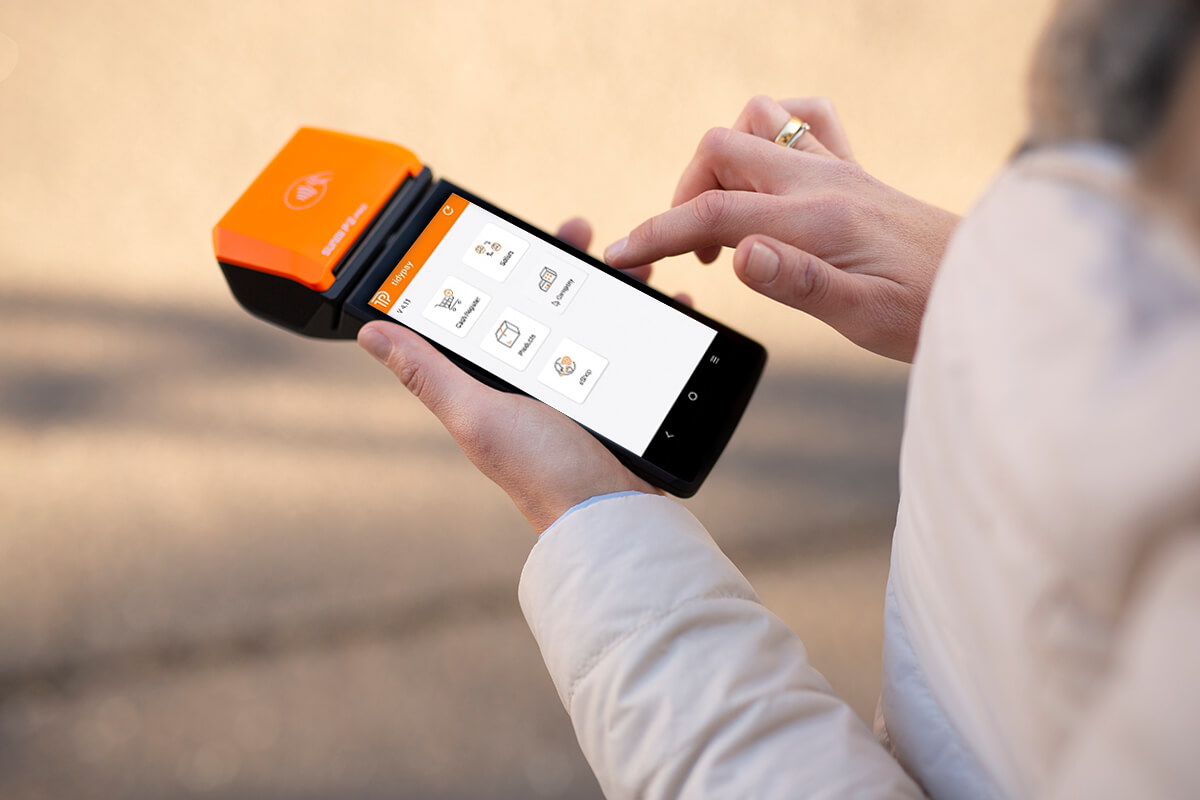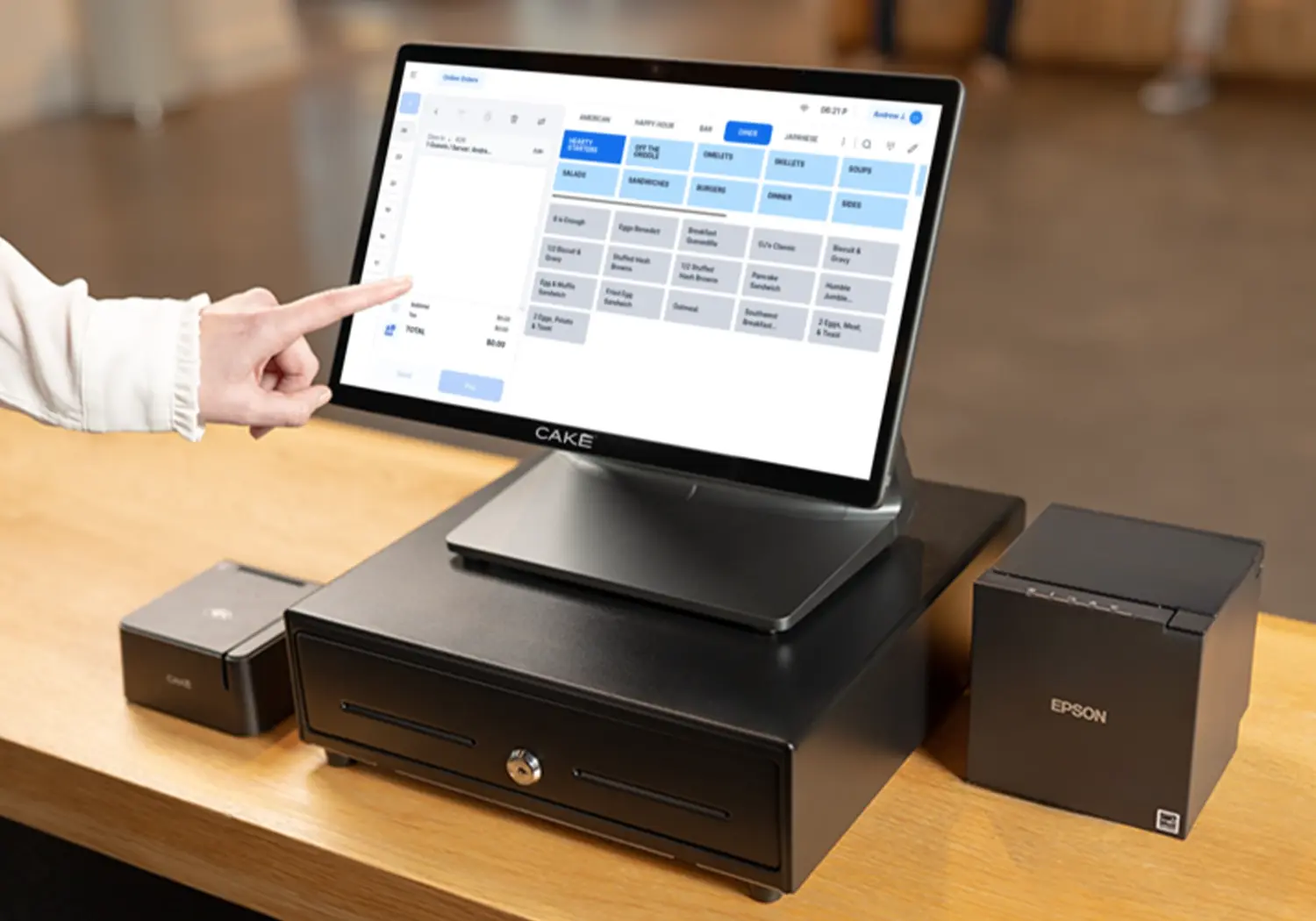Pos Machine for Dummies
The Only Guide to Pos Software

POS Systems: Retail Point-Of-Sale Solutions Streamline Transactions
Everything about Point Of Sale

Hardware Elements of a Point of Sale System What makes a POS system tick? It's not simply software application; the hardware plays a starring function. Consider it as the body to the software's brain. Without the ideal hardware, even the most advanced POS software is just a pretty face. Vital POS Hardware So, what are the must-haves? Let's break it down. The main processing unit, often a computer system or tablet, is the heart of the operation. The monitor or touchscreen display allows staff to connect with the system. A barcode scanner speeds up the checkout procedure. Keep in mind the days of by hand entering each code? The trusty receipt printer supplies customers with a record of their purchase. A money drawer keeps your money safe and arranged. A card reader allows customers to pay with credit or debit cards. Diving Deeper: Beyond the Fundamentals But wait, there's more! Depending on your business, you might need specific hardware. For instance, a restaurant may incorporate kitchen printers to relay orders, while a store may use label printers for product tagging. Ever question how your regional bakery instantly prints those website delicious-looking labels? Picking the Right Hardware: A Balancing Act Choosing the best hardware isn't simply about purchasing the most pricey devices. It has to do with discovering the sweet spot in between performance, durability, and spending plan. A small organization just starting out may select a more standard setup, while a high-volume seller will require robust, high-performance machines. Is it much better to purchase brand-new or utilized? Consider your choices carefully. A brand-new system provides the current innovation and guarantee protection, however a reconditioned system can conserve you money. The Future of POS Hardware What does the future hold? Expect to see much more integration with mobile phones, biometric scanners for worker authentication, and advanced analytics dashboards showed on larger, clearer screens. Imagine a world where inventory is automatically upgraded in real-time as items are scanned-- a world where you can track your very popular product from throughout the world. The possibilities are unlimited, and the hardware is constantly evolving to satisfy the needs these days's companies. Are you ready to upgrade your point of sale system?
Software Features and Capabilities: The Heart of Your POS System
Ever enjoy a skilled barista move through a busy morning rush? Their secret isn't just caffeine; it's a smooth dance with their POS system. The software is the conductor of your business symphony, managing everything from sales to stock. But what notes should you be listening for? What abilities genuinely matter in today's market?
Stock Management: Beyond Counting Beans
Forget spreadsheets that haunt your dreams. Modern POS systems offer real-time stock tracking, alerting you when your stock of artisanal coffee beans dips precariously low. Think about it as a digital guardian angel, preventing those uncomfortable "Sorry, we're out!" minutes to customers. What if you could likewise forecast demand based on historical information? Lots of systems now use forecasting tools, a powerful weapon versus overstocking and lost sales. This assists avoid the predicament of lacking popular items or building up excess inventory of slow-moving products, both of which can constrain money circulation and area.
Sales Reporting and Analytics: Deciphering the Data
Sales information is the new gold, and your POS system is the miner. Forget feeling in one's bones how much you sold today. Dive deep into the data to uncover trends, recognize your best-selling products, and comprehend client behavior. Which menu product pairs perfectly with the everyday special? Which promotion resonated most with your clientele? These insights are not just interesting; they're actionable intelligence. Without reliable sales reporting, browsing the complexities of service decision-making becomes like cruising without a compass, increasing the possibility of mistakes and missed out on chances.
Client Relationship Management (CRM): Structure Bridges, Not Walls
Remembering a regular customer's name and favorite order is lovely, but scaling that personal touch is difficult. POS systems with CRM capabilities permit you to track consumer purchase history, choices, and even birthdays. Think of instantly providing a discount rate on their birthday-- a small gesture that cultivates loyalty and encourages repeat business. But there is the possible snag of bad data quality, which can lead to unreliable customer profiles and ineffective marketing efforts.
Payment Processing: Simplifying the Deal
The checkout experience can make or break a sale. Smooth integration with different payment approaches-- charge card, mobile wallets, even copyright-- is non-negotiable. Can your system deal with split payments? Does it offer protected tokenization to safeguard consumer information? A clunky payment procedure is like striking a sour note in your business symphony, potentially interrupting the entire performance. Making sure compatibility with evolving payment technologies and adherence to security requirements are paramount for preserving client trust and operational performance.
Employee Management: Keeping the Group in Sync
From clocking in and out to managing approvals and tracking efficiency, employee management features simplify operations and improve accountability. Is scheduling a problem? Many POS systems provide integrated scheduling tools, enhancing staffing levels based upon anticipated demand. A typical challenge that is often neglected is the obstacle of integrating staff member management performances with payroll systems, which can cause mistakes and inadequacies in wage calculations.
Advanced Features: Leveling Up Your Operations
- Table Management: Suitable for dining establishments, this function permits you to picture your dining-room, track table status, and handle bookings.
- Commitment Programs: Reward your best consumers and motivate repeat company with integrated loyalty programs.
- Online Ordering Combination: Seamlessly integrate your POS system with online purchasing platforms to expand your reach.
Picking the ideal POS system has to do with more than just functionality; it's about discovering a partner that can grow with your company. Consider your existing requirements, expect future development, and do not be afraid to ask the hard concerns. The best software application can change your organization from a disorderly cacophony into an unified work of art.
Industry-Specific POS System Applications
Think about the local bakeshop, dynamic with morning clients craving fresh croissants. A generic POS system might handle transactions, but can it handle intricate recipes, track active ingredient stock, or automatically adjust production schedules based on sales information? Probably not. That is where the beauty of industry-specific POS systems shines.
Restaurants and Hospitality
For bustling dining establishments, speed and precision are critical. How lots of times have you seen servers managing orders, adjustments, and splitting expenses, all while attempting to provide outstanding service? A restaurant POS system enhances these processes, enabling table management, kitchen order tickets, and even online buying integration. These systems frequently consist of features like ingredient-level inventory tracking, essential for handling food costs and lessening waste. Ever question why your favorite dish is often unavailable? It may come from an absence of correct stock management.
- Table Management
- Cooking Area Order Tickets
- Online Buying Combination
- Ingredient-Level Inventory Tracking
Retail Solutions
Retail, with its varied stock and consumer interactions, demands a different set of tools. Imagine a shop clothing shop having a hard time to keep track of sizes, colors, and seasonal collections utilizing a standard checkout system. An industry-specific retail POS system offers features like barcode scanning, consumer loyalty programs, and in-depth sales reporting. These systems can even incorporate with e-commerce platforms, offering a seamless omnichannel experience for consumers. Did you know some retail POS systems can anticipate future sales trends based on historical data? Now that is effective!
The Perils of an Inequality
Choosing the incorrect POS system can create considerable functional hurdles. A clothes shop utilizing a dining establishment POS, for example, would discover it inappropriate for handling stock with sizes and colors. The lack of correct reporting and analytics could result in mistaken purchasing choices and lost income. The outcome might be comparable to trying to fit a square peg in a round hole.
Key Considerations
Choosing an industry-specific POS system requires careful examination. Consider your business's special needs and functional workflows. Does the system integrate with existing software? Does it use the essential reporting abilities? Is it scalable to accommodate future growth? A well-chosen POS system is not simply a deal tool; it's a tactical possession that can drive performance, enhance client complete satisfaction, and ultimately, enhance your bottom line. Remember, it is an investment in your company's future, not just an expenditure.
Security Considerations for Point of Sale Systems
Ever heard the tale of the mom-and-pop shop that lost whatever because of a single, overlooked security defect in their POS system!.?. !? It's a cautionary tale, and it highlights a vital aspect typically eclipsed by the appeal of expensive functions and streamlined operations. The truth is, a POS system is just as good as its security. What good is a system that crunches numbers in a flash if it permits bad guys to swipe consumer's information just as rapidly?
The Vulnerability Minefield
The digital landscape is a battleground. Every POS system, regardless of size or sophistication, is a prospective target. Are you really prepared for the dangers hiding around the corner? The real pinch comes when you find that your out-of-date software has an open hole that hackers can exploit, turning your company into an unwitting accomplice in identity theft. The trouble is that hackers are crafty and are always altering their techniques.
Common Security Spaces and Specialist Tips
- Weak Passwords: "Password123" isn't sufficing. Usage strong, unique passwords for all POS system accounts and alter them regularly. Two-factor authentication is a must.
- Unsecured Networks: Your Wi-Fi resembles leaving the front door open. Secure your network with strong file encryption (WPA3 if possible) and think about a different network for your POS system.
- Out-of-date Software Application: Software application vendors spot security holes all the time. Stopping working to update is like inviting problem. Establish automated updates or schedule regular upkeep.
- Worker Training: Your staff is your first line of defense. Train them to acknowledge phishing attempts, safeguard passwords, and report suspicious activity.
Information File Encryption: Your Guard Against the Dark Arts
Think of data encryption as a secret code. It scrambles sensitive info, like charge card numbers, making it unreadable to unapproved users. Without file encryption, your clients' monetary information are like sitting ducks, ripe for the selecting by cybercriminals. It's not almost protecting your consumers; it has to do with protecting your reputation and preventing hefty fines.
PCI Compliance: The Rulebook You Can't Neglect
If you accept credit cards, you're bound by the Payment Card Industry Data Security Standard (PCI DSS) It's a set of security standards designed to safeguard cardholder data. Failing to comply can result in fines, charges, and even the loss of your capability to process charge card payments. It's a headache, yes, however it's an essential one. Consider PCI compliance as the expense of doing organization in the digital age.
Consider this: every deal processed through your point of sale is a prospective entry point for malicious stars. By carrying out robust security procedures, you're not just securing your company; you're safeguarding your customers' trust and guaranteeing the long-term practicality of your operations. The security of your POS system isn't simply a technical concern; it's a service important. It needs consistent alertness, proactive measures, and a dedication to staying ahead of the curve.